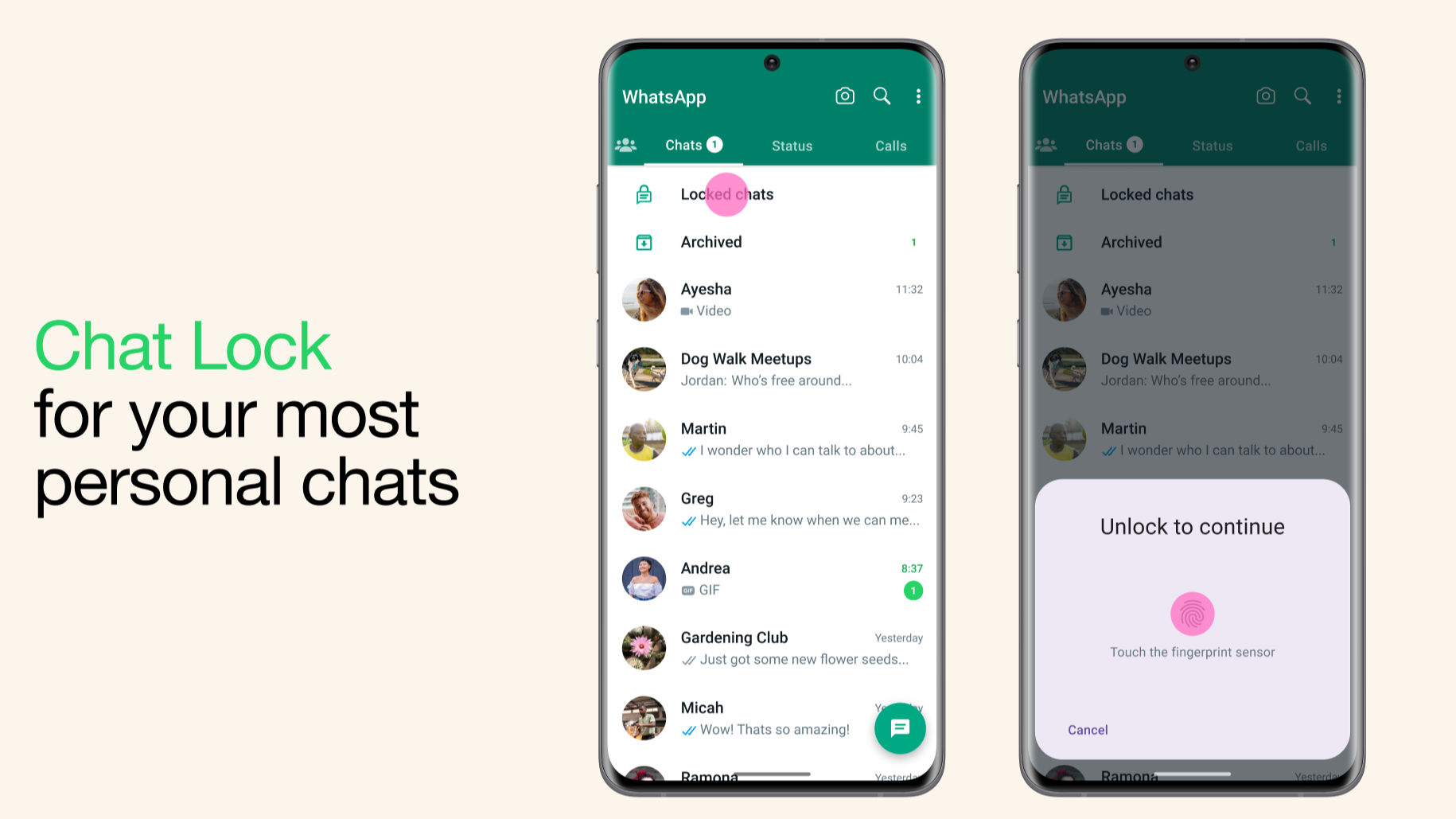WhatsApp has announced the launch of a new feature which hides “intimate” or private conversations behind an additional layer of security.
‘Chat Lock’ takes the private conversation out of the platform's inbox and puts it in a separate folder which can only be accessed with device passwords or biometrics, including fingerprints or facial recognition.
The new feature also automatically hides the contents of the private chat in notifications.
Users can lock a chat by tapping the name of a one-to-one or group conversation and selecting the lock option.
The messaging app said that it plans to add more options for Chat Lock over the next few months, including locking for companion devices and creating a custom password for chats so that users can select a unique password different from the one used to unlock phones.
WhatsApp recently published an open letter warning that the UK government’s upcoming Online Safety Bill could lead to tech firms being forced to "break end-to-end encryption" on private messaging apps.
The letter, co-signed by executives at WhatsApp, Signal, Element, Wire, Viber, Threema, and OPTF/Session, hits back at the much-anticipated legislation, claiming the law could lead to “indiscriminate surveillance” of personal messages friends, employees, executives, journalists, human rights activists, and politicians.
WhatsApp is concerned that the Bill does not deliver any explicit protection for encryption and could allow Ofcom to force the “proactive scanning of private messages on end-to-end encrypted communication services".
Latest News
-
Amazon considers largest contribution to OpenAI's $100bn fundraising round
-
Google agrees to pay $135m over Android data collection claims
-
UK government to launch centre for AI measurement
-
HSBC rolls out new tax tool for sole traders as digital rules approach
-
Lloyds Banking Group doubles AI value target to £100m in 2026
-
Tesla to end Model S and Model X production as Musk shifts focus to robotics
The future-ready CFO: Driving strategic growth and innovation
This National Technology News webinar sponsored by Sage will explore how CFOs can leverage their unique blend of financial acumen, technological savvy, and strategic mindset to foster cross-functional collaboration and shape overall company direction. Attendees will gain insights into breaking down operational silos, aligning goals across departments like IT, operations, HR, and marketing, and utilising technology to enable real-time data sharing and visibility.
The corporate roadmap to payment excellence: Keeping pace with emerging trends to maximise growth opportunities
In today's rapidly evolving finance and accounting landscape, one of the biggest challenges organisations face is attracting and retaining top talent. As automation and AI revolutionise the profession, finance teams require new skillsets centred on analysis, collaboration, and strategic thinking to drive sustainable competitive advantage.
© 2019 Perspective Publishing Privacy & Cookies









Recent Stories